In today’s digital era, where information is constantly on the move across all digital platforms, and it has become easier to steal personal information, data has become a valuable asset more than ever. In fact, most online platforms require a lot of personal information to use.
Unfortunately, with that increased amount of data circulating online comes the risk of data leaks. A data leak can result in serious consequences such as financial loss, identity theft, legal ramifications, and reputational damage, among others. Besides, nobody is immune to data leaks.
Therefore, it’s important for any online user to understand what data leaks are, the consequences they have, how they occur, how to check whether their data has been leaked, and the ways to prevent them. Read this article to learn this. Before all that, below is a data leak checker tool you can use to check if your email was hacked through a compromised online account.
Note: The above tool isn’t developed by PrivacySavvy, unlike other free security tools on our website. We, however, recommend using this, Surfshark’s Alert (available in Surfshark One and Surfshark One+ plans only), to check your leaked data out of all the tools available today.
What is a data leak?
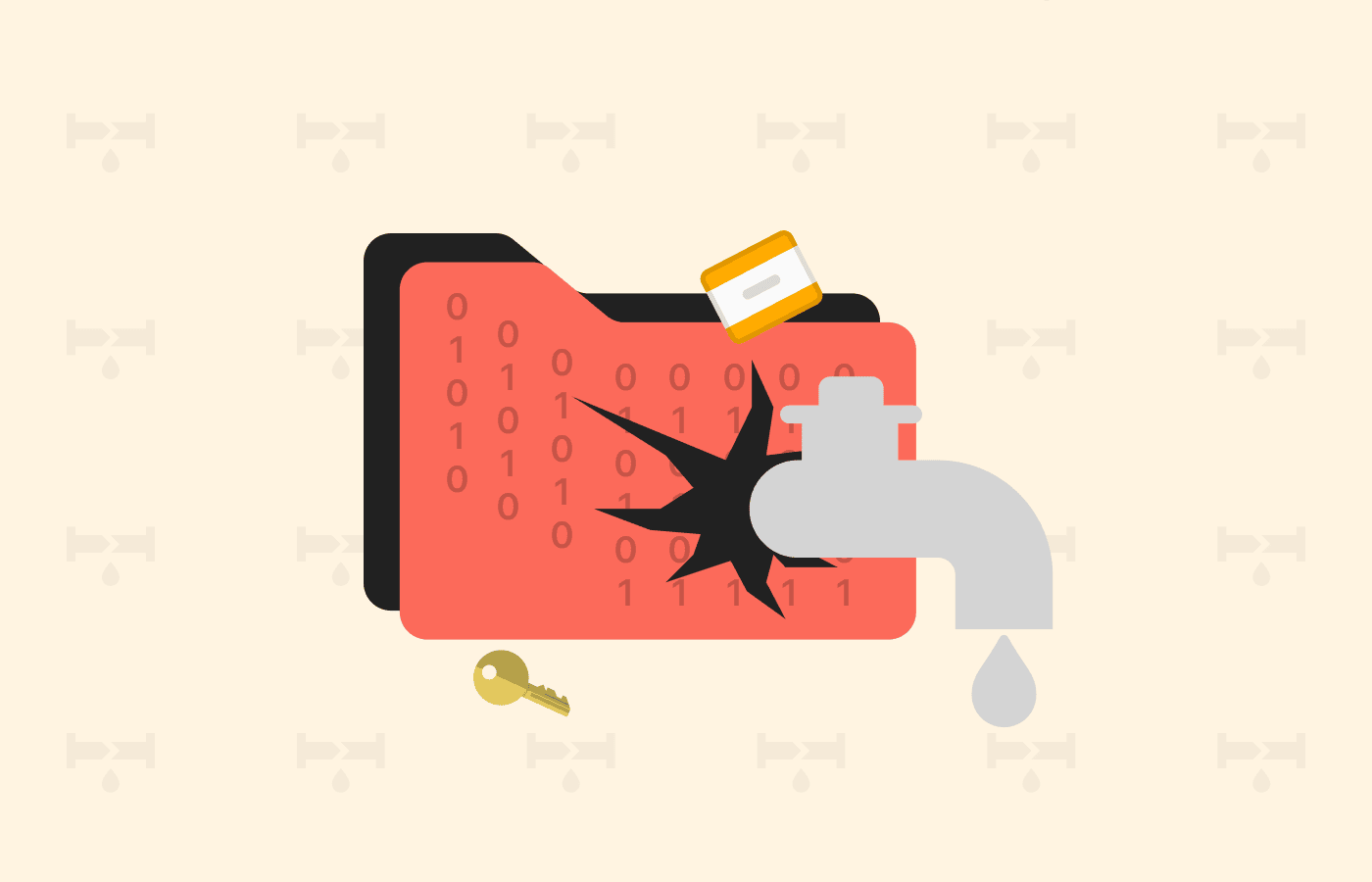
A data leak refers to an intentional or accidental disclosure of protected, confidential, or sensitive information to unauthorized parties or surveillance companies. There are several ways of data leaks, including misconfigured systems, human error, or negligent behavior.
Once your data is leaked, hackers look for a wide range of information depending on what they intend to do with it. However, the top types of information that they look for in leaked data include the following:
- Personal data: Your personal information, like addresses, names, social security numbers, and any other identifiable information, is a top priority. Hackers can use such information for things like financial fraud, identity theft, and various criminal activities.
- Login credentials: Some information, like your usernames and passwords, is essential for hackers to help them have unauthorized access to your corporate networks, online accounts, and several other sensitive systems.
- Financial information: The financial accounts are a top spot for several hackers, and they could be looking for your credit card number information and bank account details to help them steal money.
- Health records: Hackers look for a user’s health records to facilitate medical fraud and any other criminal activity.
Generally, there’s a lot of information that can be extracted from leaked data so long as it can be monetized. Sometimes, hackers could look for any information that could embarrass you or an organization for leverage in negotiations. Therefore, it’s paramount that you protect your personal information with robust cybersecurity measures.
But how will you know that you’ve been hacked? Let’s explore.
What is a data leak checker?
A data leak checker is an online privacy tool that helps you check if your data has been leaked in a data leak. You only need to enter your email to know everything about your leaked information. Some of these tools, such as the one offered by Surfshark, also allow you to secure yourself instantly should you see your data in leaked databases.
Am I not exposing my email? We hear you. Well, that’s not the case with most of the reliable data leak checkers like Surfshark Alert (Surfshark’s Data Leak Checker). It is a free tool and doesn’t require signing up. Moreover, your email remains private.
Other than that, it keeps you informed in case you experience any type of data leak. Therefore, as a privacy guide, we recommend using Data Leak Checker.
Why should you use a data leak checker tool?
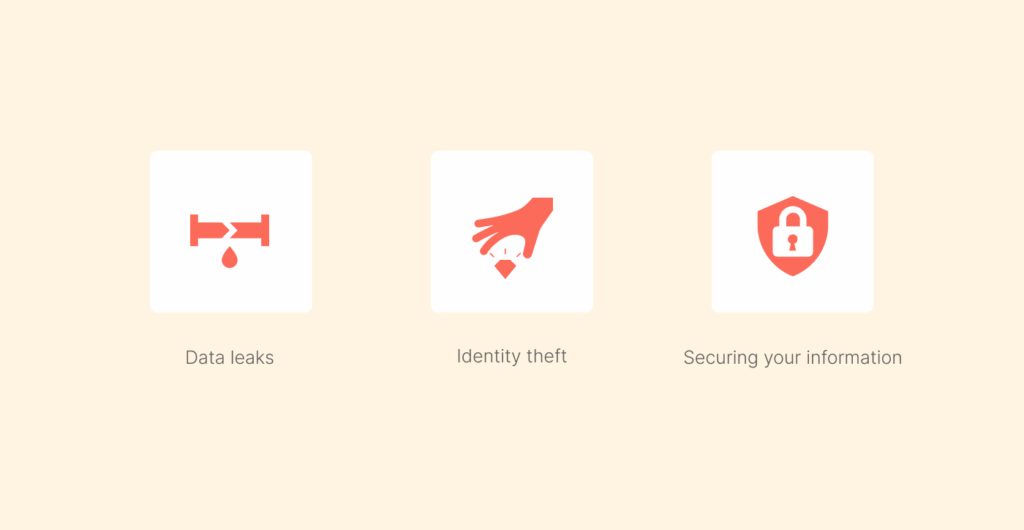
It improves your online privacy and security and keeps you informed if you have been compromised. The following are some critical uses of a data leak checker:
- Data leaks alerts: It will notify you via email alerts and data leak reports about any leaked information.
- Identity theft risks: A data leak check tool like Surfshark Alert keeps you secure from identity theft by letting you know when your data is compromised.
- Notifies you of securing your information: A data leak checker tool guides you to take necessary action to secure your account and prevent further data leaks.
- Gives you peace of mind: You can browse and roam the internet without any worry, as a data leak checker tool like Surfshark Alert gives you complete control over your information.
Surfshark Alert – How to use it?
Using Surfshark Alert and Data Leak Checker isn’t a difficult task; you only need to visit its website, enter your email address in the bar, and click ‘Check now.’ It’ll instantly notify you if your data has been leaked. We’ve an affiliation with Surfshark, and we worked with them to integrate it onto our page, as you can see above.
Most data leak checkers have a limited GBs of database of leaked hashed email data. Surfshark’s data leak checker, dubbed Surfshark Alert, which we’ve integrated above, does not have a data limit. It continuously monitors for data breaches and alerts users if their information is compromised.
With Surfshark Alert, you can add as many emails as you want, your credit card, and IDs for regular updates. This ensures your data is protected. All you need to do is sign in using your credentials (if you don’t have an account, sign up on its website), choose email, credit or debit card, or ID monitoring, and click the ‘Plus’ sign to add your information.
Signs that you’ve been hacked
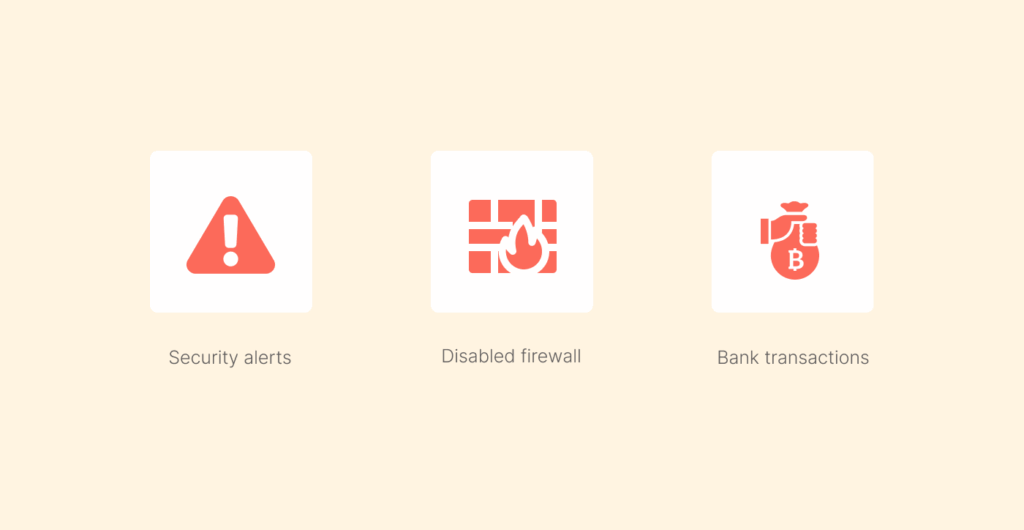
No one is safe from hacking. Many online users are often targeted and hacked, even if it seems unlikely. The worst part is that most people don’t even realize hackers have breached their systems until it’s too late.
Hackers try as much as possible to remain undetected so that they can perform their operations. However, there are some warning signs you can look out for that will indicate that your device, system, or account has been hacked.
The first thing to show you that you might be compromised is when you see suspicious or unusual activity. Here’s how to tell that you’ve been hacked:
Locked out of your accounts
When you try to log in to your accounts and your usual password fails even when you’re sure you haven’t changed it, then that could be a sign that you have been compromised. Probably, a hacker has gained your credentials and changed the login details.
Security alerts
If you start receiving alerts from some services like Microsoft and Facebook about a new login attempt or a change of password, it could be a hacker in action. Therefore, you need to be alert when you receive alerts like:
- “Your password was changed.”
- “New sign-in from unrecognized device.”
Unusual account activity
Another sign of being hacked is when you start seeing unusual behavior on some of your accounts. For instance, you start seeing unfamiliar logins, emails that you didn’t send, social media posts that you didn’t take action on, purchases online that you haven’t made, and several activities you didn’t authorize.
Disabled firewall or antivirus
The best way for hackers to act undetected is by disabling your security tools. Therefore, when you see your antivirus shutting down unexpectedly, or it can’t update, then you should be suspicious.
Unauthorized bank transactions
Whenever hackers gain access to their target’s financial information, they can make online purchases. Therefore, if you see some transactions that you didn’t make or can’t explain, that should be a good indication that someone else is in control.
Your contacts are receiving messages you didn’t send
If your contacts reach out about strange spam or phishing messages that you didn’t send from your social accounts or email.
Unusual device behavior or performance
Sometimes, if you experience some unusual behavior from your device, like sudden slowness, frequent freezing, and crashes could mean the device has been compromised. Sometimes, applications could open and close on their own. Another sign is overheating of your device, which could mean there’s malware using your device’s resources in the background.
There are several signs that could show that you have been compromised; unknown devices on the network, browser behavior changes, applications you didn’t install, unusual data usage, strange app permissions, and several others should tell you that you need to take action immediately.
Why should you care about data leaks?
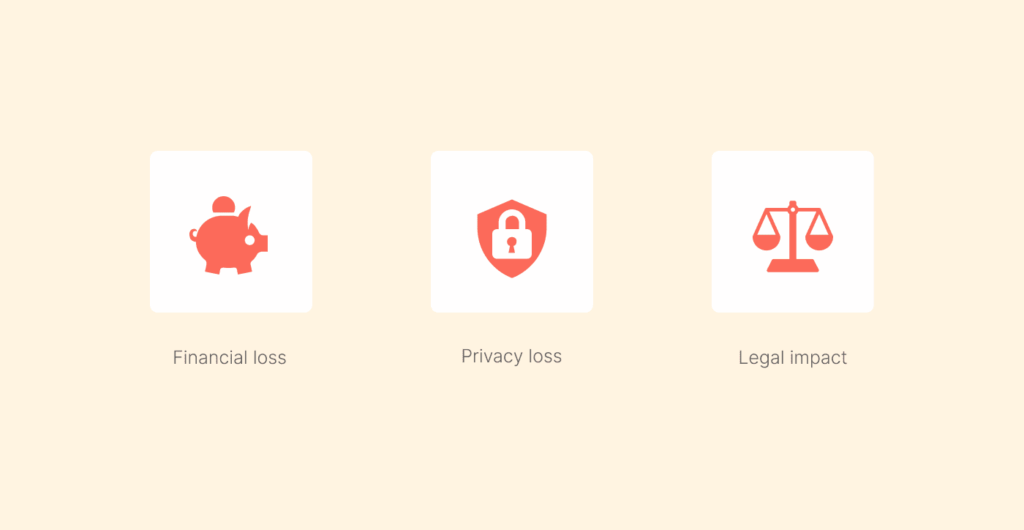
Perhaps, you might think that you can’t be a victim of a data leak, and you shouldn’t care. Data leaks can happen anytime and to anyone. Besides, when they happen, they directly threaten your security, privacy, reputation, and finances.
Therefore, if a data leak happens, it can lead to costly consequences that sometimes can be irreversible. For instance, here are some of the reasons why you need to care about data leaks:
Financial loss
A data leak can result in an immense financial impact on an individual or business, both indirectly and directly. When a hacker gets access to your banking credentials, PayPal accounts, or credit card numbers, they can make unauthorized purchases, steal crypto, and even empty your bank account. Sometimes, they can perform ransomware attacks, which lead to huge financial losses.
Reputational damage and privacy loss
When a data leak happens, customers, stakeholders, and partners will worry about how it happened and the likelihood of it happening again. That way, it leads to a loss of trust as well as confidence in a company. It will result in future customers thinking about it when considering the business. Besides, competitors might use the breach to sell their services or products.
At an individual level, when your personal information is exposed, it puts your private life at risk.
Operational downtime
When it comes to business operations, email security breaches might disrupt operations, leading to downtime and reduced productivity. Moreover, it can lead to delayed communications between the customers and the business that can result in delayed customer responses, processing of orders, and many other activities.
Legal impact
When a business’s data is leaked, the business might be able to be responsible depending on the laws and the circumstances of the breach, like fines as per the privacy laws, such as HIPAA, GDPR, and CCPA. Also, customers can sue the business (owner, IT professional, or manager).
Sometimes, you can suffer the consequences of a data leak that you didn’t create. For instance, third-party services such as online stores, social media, and healthcare providers can be hacked, and your data leaked.
A data leak is something that every internet user should be concerned about. Therefore, you need to take good care of your personal information on the internet, and you should also regularly check whether your data has been leaked and is being sold on the dark web.
How to deal with data leaks
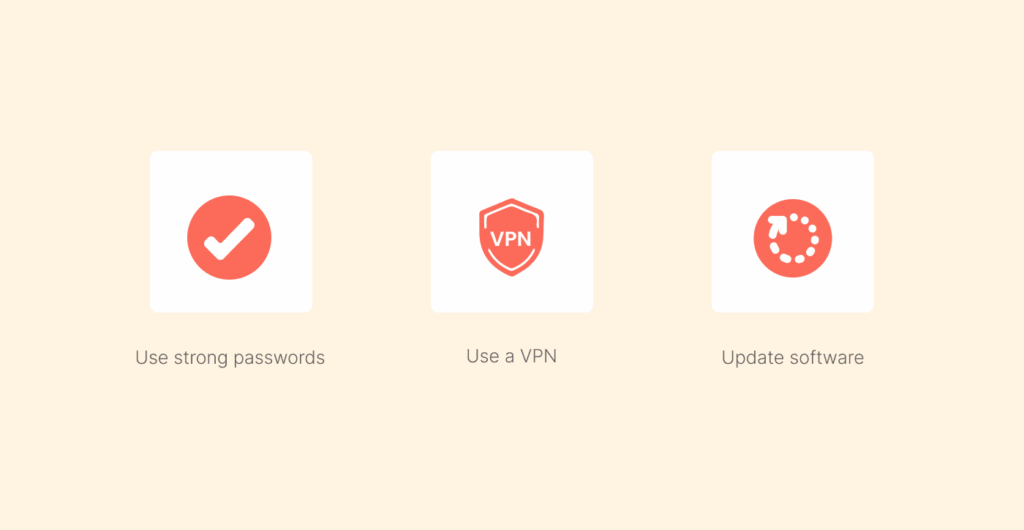
Perhaps the first step to deal with a data leak is to stay away from it as much as possible. It means that you need to do everything possible to stay ahead of the ways that hackers use to lure victims into leaking their personal information.
Getting your hands on a service like Surfshark Alert is recommended if you need to deal with a data leak. You cannot sit back and relax in cybersecurity. Hence, on top of having a data leak service, you must stay cautious and follow best practices. Here are some of the top ways to protect yourself against data leaks:
- Use strong passwords: On all your accounts that require login credentials, ensure that you use strong and unique passwords. Never use one password for several accounts because if one account is compromised, all the other accounts are at risk. You can use a password manager (discussed below) to help you store your passwords securely.
- Monitor accounts: Ensure that you regularly check your accounts. For instance, check your credit card reports and financial statements for any unusual activities. Any time you come across anything suspicious, you should report it immediately.
- Use a VPN: Using a VPN when surfing the internet should be a no-brainer, given that it masks your internet traffic and offers exceptional protection against prying eyes. All you have to do is choose the best VPN service, like NordVPN, for assured results.
- Enable two-factor authentication: When you use two-factor authentication, it adds an extra layer of protection, whereby anyone trying to access your accounts will be required to enter a second verification, like a text message or even a fingerprint.
- Beware of suspicious links and emails: It should be a rule of thumb that you never click on emails or respective links that you are unaware of their origin. Phishing links and emails are common ways that hackers use to gain access to sensitive data.
- Update software: Regularly update the software of our device. Often, software updates include security patches as well as bug fixes, which help to protect your device against data leaks and several other security threats.
- Never share your personal information online: Sometimes, we’re our own victims by sharing personal information on social media. Therefore, you should avoid sharing any sensitive information anywhere on social media. Also, you should be cautious when it comes to accepting friend requests from unknown sources.
Perhaps, if you follow all the tips, you can reduce your risk of falling victim. Also, you need to stay ahead and alert on the latest threats. Moreover, you need to often check the dark web and see if your personal information is for sale – you can do a dark web scan and monitoring.
In case you find out or suspect that you’ve been hacked, here are some of the things that you need to do:
- Find out what personal data is compromised: When your data is leaked, the measures you take sometimes depend on the type of data that was exposed. A data breach notification often tells you the sensitive data that might have been stolen. Some data types pose less threat when exposed than others. For instance, when your name or email address is exposed, that impact might be spam sent to you. However, when highly sensitive information like your Social Security number is exposed, the risk could be higher, like identity theft or even fraudulent credit applications under your name.
- Disconnect your internet: When you immediately disconnect your internet, it helps to stop any potential ongoing data transmission and also prevents further access.
- Change passwords immediately: You need to start with the accounts specified in the leak notification and update the passwords and PINs. Also, you need to consider changing all your other account passwords as they might be at risk, too. Perhaps you need a password manager to help you generate strong and unique passwords and then store them for you.
- Initiate a fraud alert: You can initiate a fraud alert, for instance, to notify the lenders that process your credit applications under your name that you’re a victim of identity theft or fraud, and hence should be strict in verifying your identity.
- Notify the affected parties: Sometimes, hackers who take control of your accounts can send malicious links to friends so that they can also steal their data. Therefore, you need to alert your contacts to be aware and never click suspicious attachments or links that might come from your accounts. In case the breach is work-related, you need to alert the IT department immediately.
- Lock or freeze your credit file: If your banking information or social security number is compromised, then you can consider freezing or locking your credit to stop identity theft.
Free tools to stay ahead of data leaks
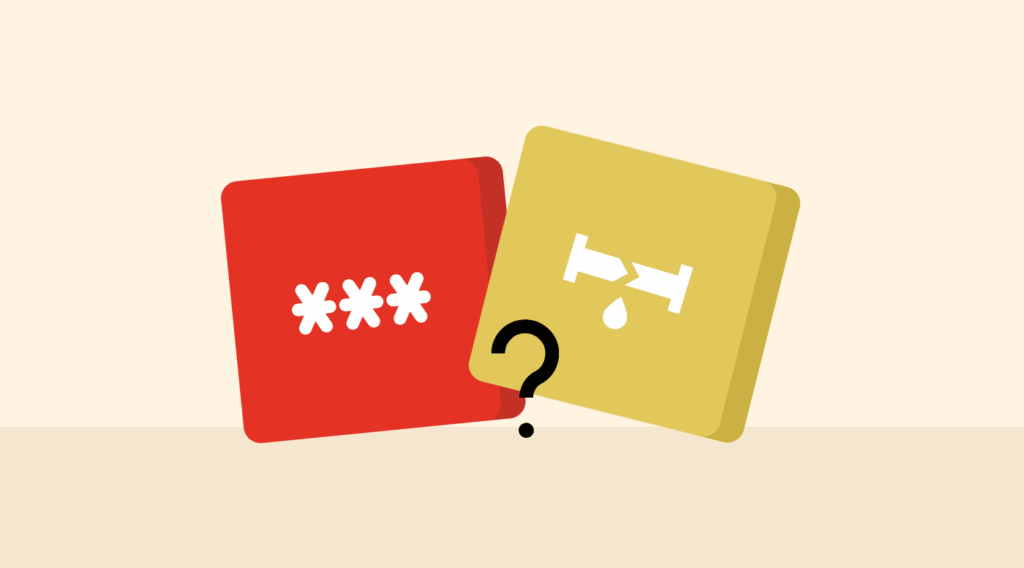
Tools like Surfshark Alert are paid. If you’re on a budget and need free options for safety, you can turn to free options.
The best way to stay away from a potential data leak is to use strong and unique passwords across all your online accounts. To help come up with strong and unique passwords, you can use a free password manager.
1. Free password manager
Using weak, easily guessed, or reused passwords facilitates data leaks. Therefore, you can use a free password generator to help you come up with robust passwords.
A password generator is merely an offline tool that helps create random but strong passwords. A free password manager doesn’t require any subscription, and hence it’s a perfect tool that anyone can access and use.
It helps to customize your password the way you want in terms of character types and length. The advantage of using a password manager is that it helps come up with strong, random passwords that are difficult to guess and crack.
Also, it ensures that you don’t reuse a password across all the accounts, saves time, and also helps promote excellent password hygiene.
2. IP leaks
If privacy is your priority, then you need to hide your IP address. An IP address reveals your identity, location, and browsing habits. Therefore, when your IP address is exposed (IP leak), your information is at risk. Fortunately, you can use an IP leak tool.
An IP leak tool is an online, free utility that can help you check whether your IP address has been exposed. Sometimes, IP leaks occur even when you’re using a VPN, proxy, or any other anonymous service.
IP leaks can result in someone being able to easily track your browsing activity, determine a user’s approximate location, profile a user for surveillance or ads, and even launch targeted attacks.
There are several types of IP leaks, like IPV4 leak, DNS leak, WebRTC leak, and IPv6 leak. An IP leak tool checks by displaying a user’s public IP address, tests WebRTC, and looks for leaks via the browser’s communication settings in real-time. Also, an IP leak tool checks DNS queries and IPv6 tests to verify and ascertain whether your IPv6 address has been exposed.
Therefore, an IP leak tool is significant as it helps you to ensure that your VPN is working as it’s supposed to. Moreover, an IP leak ensures privacy and safety when you connect to public Wi-Fi and helps access geo-restricted material.
In a nutshell, in a digital era where online privacy is increasingly growing, tools such as a free password manager and IP leak tool are exceptional ways to ensure that you have control of your online privacy and security.
FAQs
When you suspect that you’ve been hacked, you should look for a few signs, like your email sending emails that you know you didn’t write, password changes without your knowledge, installed apps that you didn’t install, and financial account transactions that you didn’t authorize. Also, you can use a personal data leak checker to scan databases and tell you whether your data has been exposed.
You should worry about a data leak exposing your personal information and hence putting you at risk of things like identity theft and loss of privacy, and even financial loss from your bank card accounts.
There are several tips you can use to prevent your data from leaking. Some of the top measures include using a strong VPN, not clicking on suspicious emails and links, using strong passwords, and regularly updating software and checking for leaks.
When you’re certain that you’ve been hacked, you need to start by switching off your internet connection, uninstalling suspicious apps, changing passwords where possible, and updating your phone; it will help to cut down further damage.
Before deleting a hacked email, check it on a data leak checker to see if it is really hacked. If yes, then change your password along with enabling double-factor authentication. When you can recover your email account, why rush to delete it? This is what we recommend.
